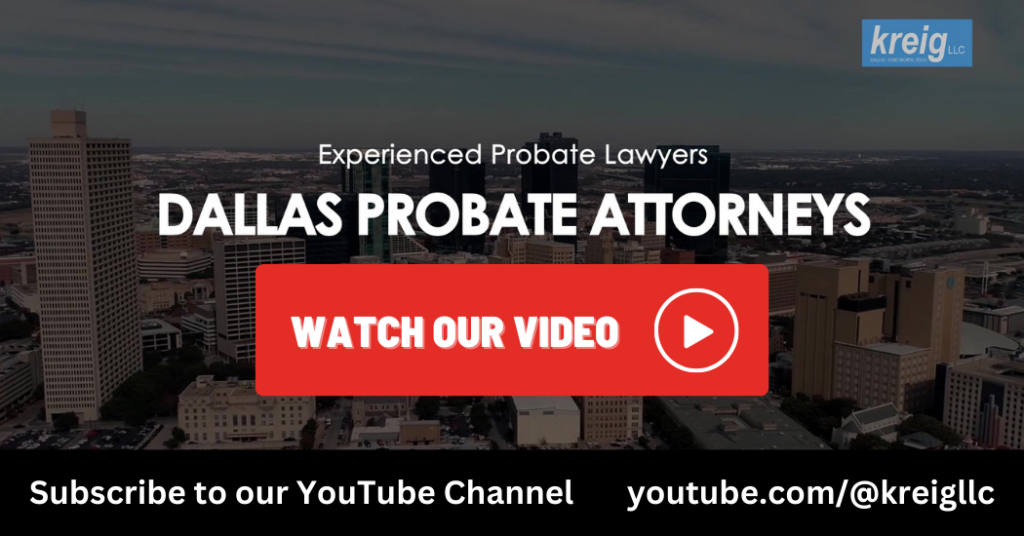Probate disputes often involve conflicting claims by family members. The claims can result from misunderstandings or even viewing the same facts from a different perspective. The claims can also come from outright theft and other wrongdoing. The outcome in these types of disputes can often come down to who has the burden of proof in the case. This is where the fiduciary duty concept and rules come into play.
The court recently addressed these concepts in the Peek v. Mayfield, No. 02-22-00492-CV (Tex. App. – Fort Worth [2nd Dist.] 2023) case, which involved claims against the trustee for improper trustee self-dealing and undue influence.
Facts & Procedural History
The case involves a probate dispute over the administration of a revocable living trust that was created by a husband and wife. The couple had set up the trust during their lifetimes. The trust was to benefit their two children and others.
The son, Bruce, was eventually appointed as the trustee. He and his sister, Mayfield, had not spoken in thirty years. After their father died, Mayfield sued Bruce alleging that he breached his fiduciary duties to the beneficiaries, including herself. She also claimed that her brother exerted undue influence over their elderly mother before she died a few years prior. Specifically, Mayfield alleged that in April, prior to their mother’s death, Bruce improperly caused their mother to transfer assets from the trust to herself individually. After she died months later, the assets passed through her estate to Bruce.
The El Paso County Probate Court refused to hear the claim by Mayfield. The appeals court reversed the probate court, and on rehearing, the probate court found that Bruce breached his fiduciary duties as trustee and that he unduly influenced the mother to transfer assets from the trust. The probate court appointed a receiver over the trust and ordered remedies for the breaches. The litigation continued and the appeals court weighed in on the various claims, including the breach of fiduciary duty claims.
About Revocable Living Trusts
A living trust is a legal document that can be used by the grantor to control how their assets will be distributed after death. The grantor has this control by appointing a trustee and providing instructions to the trustee to follow with respect to the trust property.
The living trust usually starts with the grantor being the trustee. The grantor can name a successor trustee to manage the trust if they become incapacitated, and can specify how and when the assets in the trust will be distributed to their beneficiaries.
One key aspect of living trusts is that they are revocable, meaning that the grantor can change the terms of the trust at any time as long as they are alive and competent. Upon the grantor’s death, however, the terms of the trust cannot be changed.
Another key aspect of living trusts, and all trusts for that matter, is that the trustee is held to a high standard when it comes to dealing with the trust property. This is the “fiduciary” aspect of trusts. The trustee owes a fiduciary duty to the beneficiaries when it comes to the trust property.
What is a Fiduciary Duty Under Texas Law?
What is a fiduciary duty? Texas law provides the answer.
Under the Texas Property Code, trustees owe beneficiaries strong fiduciary duties of loyalty, good faith, and disclosure of material information. Tex. Prop. Code §§ 113.051-115.059 state that key duties include:
- Administering the trust solely for the beneficiaries’ benefit
- Avoiding any transactions that constitute improper self-dealing
- Providing accountings and disclosing material facts to beneficiaries
- Courts have emphasized that trustees must strictly comply with their obligations to beneficiaries. A trustee who violates these statutory fiduciary duties commits a breach of trust.
Texas law provides remedies for breach of this duty. Texas Property Code §§ 114.008, 114.061 allow for any beneficiary harmed by a fiduciary breach to seek remedies including damages, removal of the trustee, and appointment of a receiver to take control of trust assets.
Evidence of Breach of Fiduciary Duty
There are a number of ways to prove that there is a breach of fiduciary duty. This can include direct and circumstantial evidence. Circumstantial evidence can include witness testimony and evidence of transfers, etc.
In the present case, the appeals court found ample proof supporting the trial court’s determination that Bruce, the son, violated his fiduciary obligations as trustee. The evidence showed that he had engaged in self-dealing by transferring trust assets to himself without informing the beneficiaries or redistributing the interests to them. Additionally, he did not disclose the real property transfers from the trust to his mother or to the other beneficiaries. The court found that Bruce’s lack of transparency about material transactions violated his fiduciary disclosure duties.
Given this evidence, the appeals court found sufficient grounds for the trial court to conclude Bruce breached his fiduciary obligations as trustee through improper self-dealing and failure to disclose.
Undue Influence Under Texas Law
Fiduciary duty concepts also spill over into the claim for undue influence. Undue influence is a separate claim that beneficiaries of a trust or estate can bring to reverse transactions.
To prove undue influence, a plaintiff must generally show:
- Existence of an improper controlling influence over the grantor
- The grantor’s susceptibility to such influence
- The actual exertion of such influence subverted the grantor’s free will
- The grantor would not have taken the action but for the influence
- Courts look at factors like the relationship between parties, grantor’s mental/physical state, participation in preparing documents, etc. Motive, opportunity, and ability to control are key considerations.
When it comes to fiduciaries, undue influence is presumed and the burden shifts to the fiduciary to disprove it. And the fiduciary duty can arise from a formal arrangement, like a trust that names a trustee, or even an informal relationship, like a child taking care of an elderly parent.
In this case, the court examined whether sufficient evidence supported the finding that Bruce exerted undue influence over his mother, causing her to transfer trust assets to herself prior to her death. This resulted in the assets transferring to Bruce on his mother’s death.
Mayfield, the decedent’s daughter, presented testimonial evidence that despite being estranged from his parents for years, her brother Bruce suddenly took a strong interest in their mother’s well-being as she became elderly and frail. Witnesses described him having isolated their mother, strictly controlling access to her, and frequently being alone with her before she became upset.
Other testimony indicated he had a motive to gain control over his parent’s finances and voiced wanting them dead. Evidence also showed the mother favored Bruce, but did not intend to disinherit Mayfield completely.
The court found this testimony provided legally sufficient circumstantial proof that Bruce, as a fiduciary, was in a position to influence his mother and that she was susceptible to influence that caused her to improperly transfer assets away from the trust beneficiaries. This was sufficient given that Bruce was a fiduciary and held to a higher standard.
The Takeaway
This case highlights how and why trustees have to scrupulously fulfill their duties under the terms of the trust. Circumstantial evidence of motive, opportunity, and controlling influence can prove a fiduciary’s breach of duty. Those who are appointed as a trustee should take note of this. The role of a trustee is a very important and serious position. It is one that can get the trustee in trouble if they fail to act in the best interest of the trust beneficiaries.
Our Dallas Probate Attorneys provide a full range of probate services to our clients, including helping with probate litigation. Probate is what we do. Affordable rates, fixed fees, and payment plans are available. We provide step-by-step instructions, guidance, checklists, and more for completing the probate process.We have years of combined experience we can use to support and guide you with probate and estate matters. Call us today for a FREE attorney consultation.
Disclaimer: The content of this website is for informational purposes only and should not be construed as legal advice. The information presented may not apply to your situation and should not be acted upon without consulting a qualified probate attorney. We encourage you to seek the advice of a competent attorney with any legal questions you may have.
Don't miss out, get a copy today!












